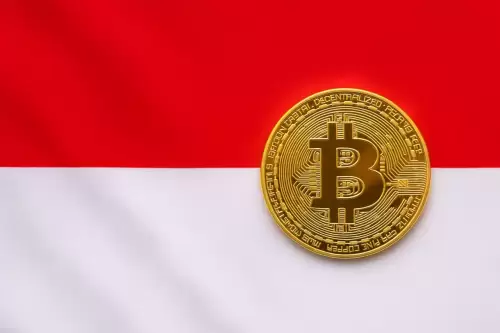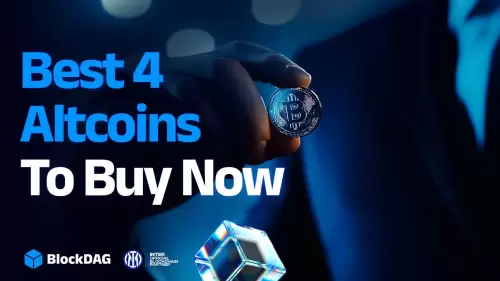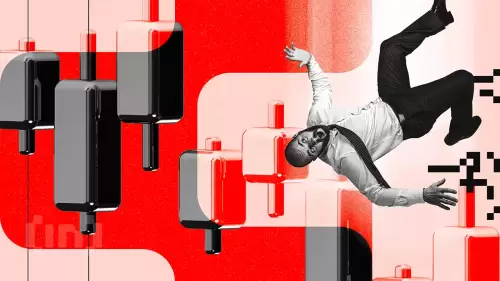 |
|
 |
|
 |
|
 |
|
 |
|
 |
|
 |
|
 |
|
 |
|
 |
|
 |
|
 |
|
 |
|
 |
|
 |
|
Cryptocurrency News Articles
EIP-7999: Ethereum's Fee Fixer-Upper – Is This the End of Gas Fee Nightmares?
Aug 06, 2025 at 01:26 pm
EIP-7999 aims to simplify Ethereum's transaction fees, but will it be enough to keep up with the competition? Get the lowdown on the latest fee proposal and its potential impact.

EIP-7999: Ethereum's Fee Fixer-Upper – Is This the End of Gas Fee Nightmares?
Ethereum's trying to make paying for transactions less of a headache. EIP-7999's the name, and simplifying gas fees is the game. Will it work? Let's dive in.
The Problem: Gas Fees Are a Buzzkill
Let's be real, Ethereum gas fees have been a drag since way back in 2017. Remember the ICO craze? Yeah, that clogged everything up. Then came DeFi summer and NFT mania in 2021, where you'd drop $50 just to make a transaction. Seriously?
EIP-7999: A Unified Fee Market to the Rescue?
Enter Vitalik Buterin and Anders Elowsson with EIP-7999. The idea? A unified multidimensional fee market. Instead of guessing at different costs, you set one max fee for everything – computation, storage, bandwidth, the whole shebang. The goal is to make things simpler and more predictable.
Dencun's Impact and the Rising Competition
The Dencun upgrade in March 2024 was supposed to help, and it did somewhat. Average gas fees dropped, but Ethereum's price also took a hit. Meanwhile, Tron and Solana saw their transaction fees skyrocket, stealing some of Ethereum's thunder. Ethereum made $2.48 billion from fees in 2024, up 3% from 2023. But, it’s worth noting that revenue generated by fees stands at $757.4 million over the last 365 days.
Why This Matters
Ethereum's not just doing this for kicks. Platforms like Solana and Layer 2 solutions are gaining ground with their cheaper, faster transactions. EIP-7999 is about keeping Ethereum competitive while staying true to its core values of transparency and fairness.
Challenges Ahead
It's not all sunshine and rainbows. Validators need to adjust, and the system needs to incentivize everyone to play nice. Plus, getting the community on board is crucial.
Institutional Interest and the Fusaka Upgrade
Big players are watching. 180 Life Sciences is throwing millions at Ethereum, and there are those ETF inflows. Looking further out, the Fusaka upgrade in November 2025 is another big step. The pressure's on to make Ethereum sustainable and user-friendly.
A Personal Take
Honestly, EIP-7999 sounds promising, but Ethereum needs to nail the execution. Simplifying fees is a no-brainer, but the real test will be whether it can actually reduce congestion and keep fees stable. If Ethereum can pull this off, it could cement its place as the king of smart contracts. If not, well, the competition's ready to pounce.
So, What's Next?
Keep an eye on the community discussions around EIP-7999. If it gets the green light, it could be a game-changer for Ethereum. And who knows, maybe we can finally say goodbye to those gas fee nightmares. Fingers crossed!
Disclaimer:info@kdj.com
The information provided is not trading advice. kdj.com does not assume any responsibility for any investments made based on the information provided in this article. Cryptocurrencies are highly volatile and it is highly recommended that you invest with caution after thorough research!
If you believe that the content used on this website infringes your copyright, please contact us immediately (info@kdj.com) and we will delete it promptly.






























































